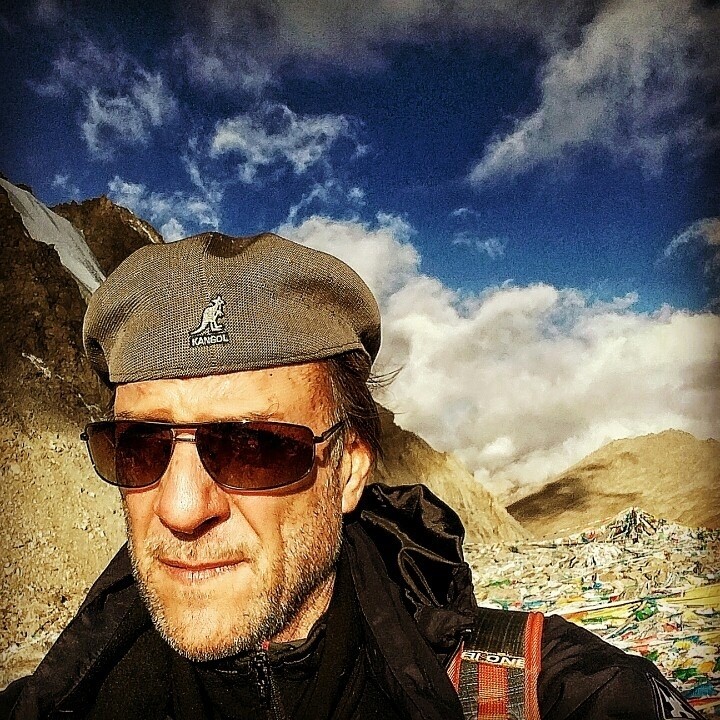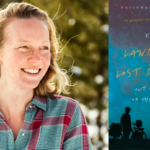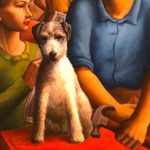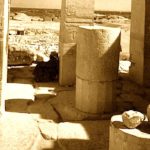Joe Cummings’ Lonely Planet guide to Thailand has sold over a million copies in its various editions since 1982. Cummings also authors the Lonely Planet guides to Southeast Asian destinations such as Laos and Myanmar (Burma), and he writes guides to northern Mexico and Baja for Moon Handbooks. He divides his time between homes in Chiang Mai, Thailand and Todos Santos, Mexico.
How did you get started traveling?
I was born to a military family in New Orleans. My family traveled a lot; we never lived in one place more than three years, often only one or two years, till I graduated from high school. Even after that I moved every two or three years till I was around 30 years old. When I was 10 the family moved to Orleans, France, where we lived for three years. Having been born an army brat herself (my parents met and married in Germany after WWII), my mom was a travel nut and I remember spending school holidays on the road to Switzerland, Italy, the Netherlands and other places in Europe, the floor of our car littered with maps and guidebooks. I went back to Europe the summer after graduating from high school, like thousands of Americans, and was struck by how ‘normal’ it seemed to me compared to the way other young Americans — who had never traveled outside the US — seemed to feel about it. By the time I entered college I’d decided I needed to see Asia, Latin America and Africa — anywhere but the US and Europe. I still haven’t been to Africa.
How did you get started writing?
I liked writing ever since I can remember. I was such a precocious brat in 5th grade (at international school in Orleans, France) that the teacher gave me my own corner of the classroom with not one desk but four put together, where she allowed me to write short stories for that entire year, instead of doing the regular work. In high school I wrote for the school newspaper, but — disappointed with the censorship — I started my own underground newspaper, The Judgement, with some friends. We made national news in1970 when I was temporarily kicked out for selling the paper on campus.
What do you consider your first “break” as a travel writer?
Probably writing the “Asia in Print” column for The Asia Record 1979-82 while I was a student at UC-Berkeley. At UC I wrote a paper on tourism in SE Asia, as seen through the eyes of communist insurgencies in Thailand and Malaysia. During that period I read every book published in English on SE Asia, including travel lit and guidebooks, and it gave me enough background and confidence to approach Lonely Planet with a proposal to do a Thailand guide. My first real travel feature, on Ko Samui, was published in1982 in the San Francisco Examiner. My first guidebook (LP Thailand) was published that same year. It was an exciting moment for me because my Thailand guidebook was the first written in English and devoted entirely to Thailand since the1920’s “State Railway of Siam” guide by Erik Seidenfaden. There were a couple of French and German guides available in translation, but they were very much geared towards hiring your own car and driver and staying in first-class hotels all along the way — culturally insulated travel.
As a traveler and fact/story-gatherer, what is your biggest challenge on the road?
Getting the right flow going. When the rhythm is right, the research just seems to gather itself. It seems to be a matter of figuring out how long to spend in each place along your itinerary. If you spend too long, the info is overwhelming and if it’s too short it’s superficial.
What is your biggest challenge in the writing process?
I’ve never had writer’s block or anything like that, so for me the challenge is purely physical. I have a case of tendonitis in one of my wrists right now from writing too much. I have to discipline myself not to write, rather than the other way around. I write a lot like I take pictures — I have to produce a lot of material to carve out something decent.
What is your biggest challenge from a business standpoint?
Through a combination of foresight, frugality, and simple dumb luck my finances are fine. Dealing with editors is definitely the toughest part of the job, although I do feel that it has become much easier in the last few years. Partly it’s because I’ve earned something of a reputation, so I get at least a modicum of respect from most, if not all, editors, and more importantly I’ve learned how to deal with editors. A lot of the problems that writers have with editors they bring on themselves. A lot is also unavoidable — it’s just the nature of the relationship. You can’t get too attached to your prose or you’ll go crazy.
Do you do other work to make ends meet? If so, what kind of work?
I taught English on the side until 1987, when it suddenly dawned on me that I was making more money writing than I was teaching. Virtually all of my income since then has come from writing. I’ve also led four ‘adventure’ tours in SE Asia for Asia Transpacific Journeys, but I didn’t really do it because I needed the money — I wanted to get some insights into how package travelers think and how the tours work.
What travel authors or books might you recommend and/or have influenced you?
My favorite travel writers of all time are the following novelists: Jean-Louis Ferdinand Celine; Joseph Conrad; Graham Greene; Paul Bowles; Alvaro Mutis. Of contemporary travel essayists my favorites are Bill Bryson, P.J. O’Rourke and Rolf Potts (I hope you can use that, ’cause it’s true).
What advice and/or warnings would you give to someone who is considering going into travel writing?
I hate travel writers who whine about how difficult it is to make a living as a travel writer, and who are constantly calculating their hourly wage and saying ‘I could make more at Burger King’. I can’t believe that anyone would enter this profession for the money. Although plenty of folks are making a very good living at it, they are definitely the exceptions. The only way to make a real go of it is to forget about fame and fortune and to polish your craft and your connections. That said, one of the most important skills you should develop early on is how to negotiate with editors and publishers. Techniques one can apply in any contract situation can make a big difference in pay and reprint rights. Flexibility is key. Meanwhile, do other work!
What is the biggest reward of life as a travel writer?
Learning about yourself and about life through encounters with other people and other cultures. Setting your own schedule is another bonus.





